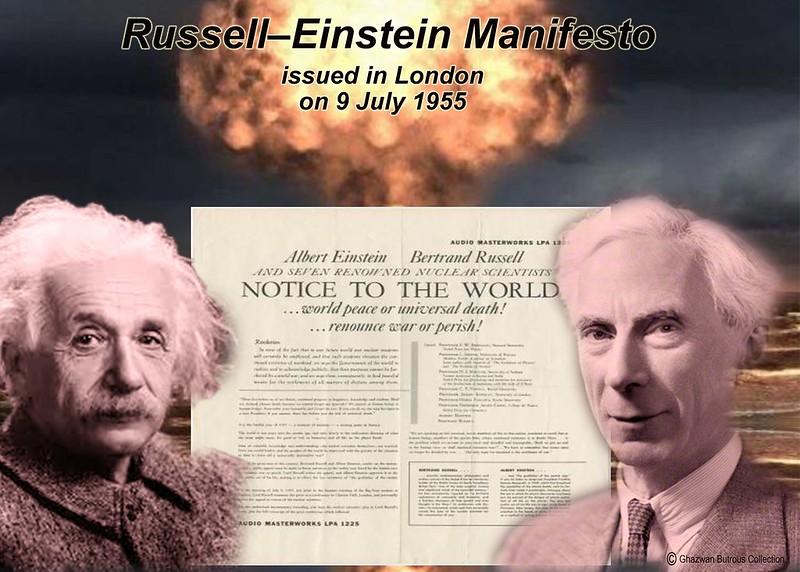Why Wars Break Out. Causes and reasons: a crucial distinction

The ongoing conflict in the Middle East has brought renewed urgency to an old question: why do wars break out? This is a particularly pressing issue today, as the decline of a dominant global power ushers in a new phase of international instability – marked by growing regional conflicts and, potentially, global ones.
When trying to understand the causes of war – especially conventional warfare – analysts often turn to geopolitical, socio-economic, or cultural explanations. Take the war in Ukraine, for example. Some argue it stems from tensions between Russia and the West, particularly over spheres of influence, or from shifting global power dynamics (such as a proxy war between the U.S. and China). Others point to economic drivers like oil prices or Russia’s internal upheavals. Still others interpret the war as a cultural or ideological clash – between democracy and authoritarianism – or as a conflict over language and minority rights.
These perspectives all offer valuable insights, but each captures only part of the picture. None provides a comprehensive explanation of war as a historical phenomenon. If any one theory were entirely correct, and all others mistaken, then simply addressing the root causes identified by that theory should be enough to prevent future wars. Yet, despite the best efforts of diplomats, thinkers, and activists, war persists. Something, then, is missing from the analysis.
Upon closer inspection, most of these theories aren’t actually addressing the causes of war, but rather its reasons or motives. The distinction is crucial. In legal theory, for instance, the cause of a contract of sale is the exchange of goods for money – not the hunger that drives someone to buy a loaf of bread. Hunger is a motive, not a cause. Millions of people buy and sell for different reasons, but the structural cause of these transactions remains the same.
Similarly, if we want to understand war as a recurring human phenomenon, we must move beyond the specific reasons for individual conflicts. We need to identify the underlying structural cause. Just as eliminating hunger wouldn’t end the system of buying and selling, eliminating the specific grievances behind a single war won’t end warfare itself. To truly address the problem, we have to examine the system that enables war – much as one would have to question capitalism itself to end the practice of commodity exchange.
If we define conventional war as armed conflict between states, then its structural cause lies in the very existence of sovereign states. The modern idea of war emerged alongside the modern nation-state: a political entity that exercises sovereignty over a defined territory and population. History shows that war is a practice of states. Stateless peoples – for example, the Jewish diaspora before 1947 or nomadic groups like the Roma – have not waged war in the same sense. And that the nation-state has certain elements that make it most suitable for sustaining modern warfare. In fact, modern warfare originates from the Napoleonic wars, when radical innovations disrupted the ancien régime military theories and practices, thanks to the levy en masse and nationalism as a new political instrument bent to the aims of war.
To confront the causes of war, we must therefore confront the system of nation-states and the principle of national sovereignty that underpins it. The idea that we can end war without questioning the division of humanity into sovereign entities is, at best, wishful thinking.
Modern warfare was born from this new political organization – the nation-state – enabled by industrial technology and mass mobilization. It allowed millions to be enlisted in the pursuit of conquest or defense, and it carved the globe into separate, sovereign territories. In this sense, war and the sovereign state are two sides of the same coin.
For a time, it seemed we might have moved beyond conventional war. Terms like “military doctrine” or “war economy” felt like relics of the past. Some believed that the fall of the Soviet Union marked the end of history. Others hoped the decline of U.S. dominance would lead to a fairer, more peaceful world. The opposite has occurred. All these hopes – absent a political reimagining of global order – have been disappointed.
This reality supports the idea that “we cannot solve our problems with the same kind of thinking we used to create them.” Though this quote is often misattributed to Albert Einstein, it does echo the spirit of the 1955 Russell–Einstein Manifesto. In it, the two thinkers warned about the threat of nuclear war and asked: “Shall we put an end to the human race, or shall mankind renounce war?” Their answer was clear: abolishing war would require difficult but necessary limits on national sovereignty.
Solving such a profound issue cannot be done in a few lines. But one thing is certain: we must begin to think differently about war. That challenge falls to our generation.






